Darwin is the core Unix operating system of macOS, iOS, watchOS, tvOS, iPadOS, visionOS, and bridgeOS. It previously existed as an independent open-source operating system, first released by Apple Inc. in 2000. It is composed of code derived from NeXTSTEP, FreeBSD, other BSD operating systems, Mach, and other free software projects' code, as well as code developed by Apple.

Portage is a package management system originally created for and used by Gentoo Linux and also by ChromeOS, Calculate, Sabayon, and Funtoo Linux among others. Portage is based on the concept of ports collections. Gentoo is sometimes referred to as a meta-distribution due to the extreme flexibility of Portage, which makes it operating-system-independent. The Gentoo/Alt project was concerned with using Portage to manage other operating systems, such as BSDs, macOS and Solaris. The most notable of these implementations is the Gentoo/FreeBSD project.
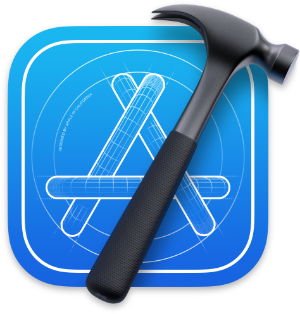
Xcode is Apple's integrated development environment (IDE) for macOS, used to develop software for macOS, iOS, iPadOS, watchOS, tvOS, and visionOS. It was initially released in late 2003; the latest stable release is version 15, released on September 18, 2023, and is available free of charge via the Mac App Store and the Apple Developer website. Registered developers can also download preview releases and prior versions of the suite through the Apple Developer website. Xcode includes command-line tools that enable UNIX-style development via the Terminal app in macOS. They can also be downloaded and installed without the GUI.
In computing, a loadable kernel module (LKM) is an object file that contains code to extend the running kernel, or so-called base kernel, of an operating system. LKMs are typically used to add support for new hardware and/or filesystems, or for adding system calls. When the functionality provided by an LKM is no longer required, it can be unloaded in order to free memory and other resources.

In multitasking computer operating systems, a daemon is a computer program that runs as a background process, rather than being under the direct control of an interactive user. Traditionally, the process names of a daemon end with the letter d, for clarification that the process is in fact a daemon, and for differentiation between a daemon and a normal computer program. For example, syslogd is a daemon that implements system logging facility, and sshd is a daemon that serves incoming SSH connections.

XNU is the computer operating system (OS) kernel developed at Apple Inc. since December 1996 for use in the Mac OS X operating system and released as free and open-source software as part of the Darwin OS, which in addition to macOS is also the basis for the Apple TV Software, iOS, iPadOS, watchOS, visionOS, and tvOS OSes.
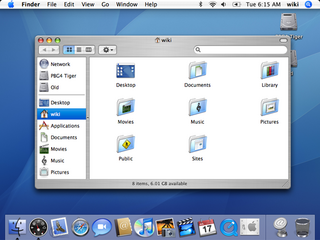
Mac OS X Tiger is the 5th major release of macOS, Apple's desktop and server operating system for Mac computers. Tiger was released to the public on April 29, 2005 for US$129.95 as the successor to Mac OS X 10.3 Panther. Included features were a fast searching system called Spotlight, a new version of the Safari web browser, Dashboard, a new 'Unified' theme, and improved support for 64-bit addressing on Power Mac G5s. Mac OS X 10.4 Tiger also had a number of additional features that Microsoft had spent several years struggling to add to Windows with acceptable performance, such as fast file searching and improved graphics processing.
PearPC is an architecture-independent PowerPC platform emulator capable of running many PowerPC operating systems, including pre-Intel versions of Mac OS X, Darwin and Linux. It is released under the terms of the GNU General Public License (GPL). It can be executed on Microsoft Windows, Linux, FreeBSD and other systems based on POSIX-X11. The first official release was made on May 10, 2004.
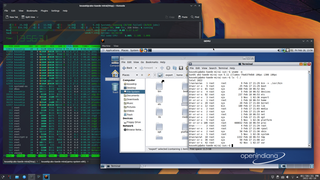
QEMU is a free and open-source emulator. It emulates a computer's processor through dynamic binary translation and provides a set of different hardware and device models for the machine, enabling it to run a variety of guest operating systems. It can interoperate with Kernel-based Virtual Machine (KVM) to run virtual machines at near-native speed. QEMU can also do emulation for user-level processes, allowing applications compiled for one architecture to run on another.
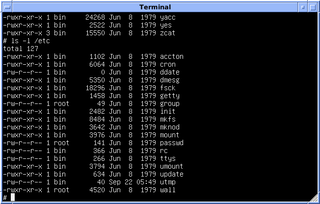
In Unix-based computer operating systems, init is the first process started during booting of the operating system. Init is a daemon process that continues running until the system is shut down. It is the direct or indirect ancestor of all other processes and automatically adopts all orphaned processes. Init is started by the kernel during the booting process; a kernel panic will occur if the kernel is unable to start it, or it should die for any reason. Init is typically assigned process identifier 1.
In the macOS, iOS, NeXTSTEP, and GNUstep programming frameworks, property list files are files that store serialized objects. Property list files use the filename extension .plist, and thus are often referred to as p-list files.

A Hackintosh is a computer that runs Apple's Macintosh operating system macOS on computer hardware that is not authorized for the purpose by Apple. This can also include running Macintosh software on hardware it is not originally authorized for. Benefits of "Hackintoshing" can include cost, ease of repair and piecemeal upgrade, and freedom to use customized choices of components that are not available in the branded Apple products. macOS can also be run on several non-Apple virtualization platforms, although such systems are not usually described as Hackintoshes. Hackintosh laptops are sometimes referred to as "Hackbooks".

The architecture of macOS describes the layers of the operating system that is the culmination of Apple Inc.'s decade-long research and development process to replace the classic Mac OS.

The EFIsystem partition or ESP is a partition on a data storage device that is used by computers that have the Unified Extensible Firmware Interface (UEFI). When a computer is booted, UEFI firmware loads files stored on the ESP to start operating systems and various utilities.

FreeBSD is a free and open-source Unix-like operating system descended from the Berkeley Software Distribution (BSD). The first version of FreeBSD was released in 1993 developed from 386BSD and the current version runs on x86, ARM, PowerPC and RISC-V processors. The project is supported and promoted by the FreeBSD Foundation.
The Linux booting process involves multiple stages and is in many ways similar to the BSD and other Unix-style boot processes, from which it derives. Although the Linux booting process depend very much on the computer architecture, those architectures share similar stages and software components, including system startup, bootloader execution, loading and startup of a Linux kernel image, and execution of various startup scripts and daemons. Those are grouped into 4 steps: system startup, bootloader stage, kernel stage, and init process. When a Linux system is powered up or reset, its processor will execute a specific firmware/program for system initialization, such as Power-on self-test, invoking the reset vector to start a program at a known address in flash/ROM, then load the bootloader into RAM for later execution. In personal computer (PC), not only limited to Linux-distro PC, this firmware/program is called BIOS, which is stored in the mainboard. In embedded Linux system, this firmware/program is called boot ROM. After being loaded into RAM, bootloader will execute to load the second-stage bootloader. The second-stage bootloader will load the kernel image into memory, decompress and initialize it then pass control to this kernel image. Second-stage bootloader also performs several operation on the system such as system hardware check, mounting the root device, loading the necessary kernel modules,... Finally, the very first user-space process starts, and other high-level system initializations are performed.
ptrace is a system call found in Unix and several Unix-like operating systems. By using ptrace one process can control another, enabling the controller to inspect and manipulate the internal state of its target. ptrace is used by debuggers and other code-analysis tools, mostly as aids to software development.
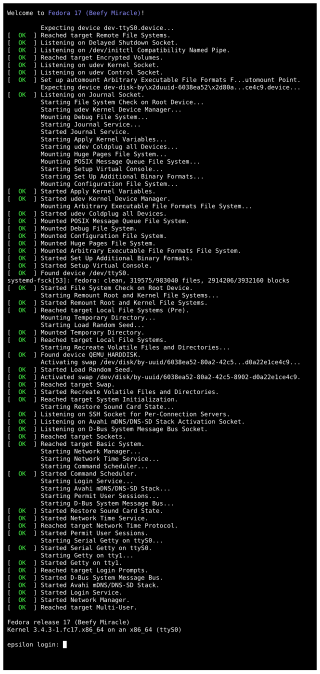
systemd is a software suite that provides an array of system components for Linux operating systems. The main aim is to unify service configuration and behavior across Linux distributions. Its primary component is a "system and service manager" – an init system used to bootstrap user space and manage user processes. It also provides replacements for various daemons and utilities, including device management, login management, network connection management, and event logging. The name systemd adheres to the Unix convention of naming daemons by appending the letter d. It also plays on the term "System D", which refers to a person's ability to adapt quickly and improvise to solve problems.
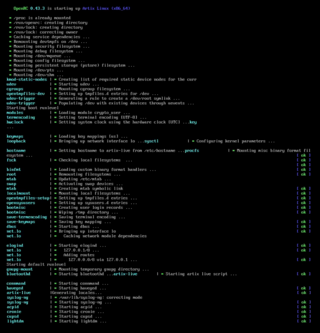
OpenRC is a dependency-based init system for Unix-like computer operating systems. It was created by Roy Marples, a NetBSD developer who was also active in the Gentoo project. It became more broadly adopted as an init system outside of Gentoo following the decision by some Linux distributions not to adopt systemd.

NextBSD was an operating system initially based on the trunk version of FreeBSD as of August 2015. It was a fork of FreeBSD which implemented new features developed on branches, but not yet implemented in FreeBSD. As of 2019, the website is defunct, with the last commits on GitHub dating to October 2019. The Wayback Machine captures of the website after December 15, 2017 are domain squatter pages, and as of March 17, 2021, the site is redirects to a fake "Apple Support" page.












